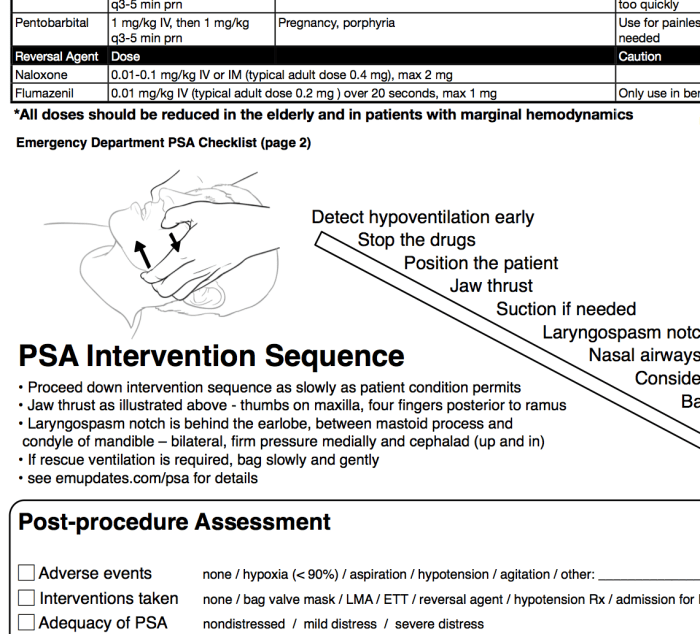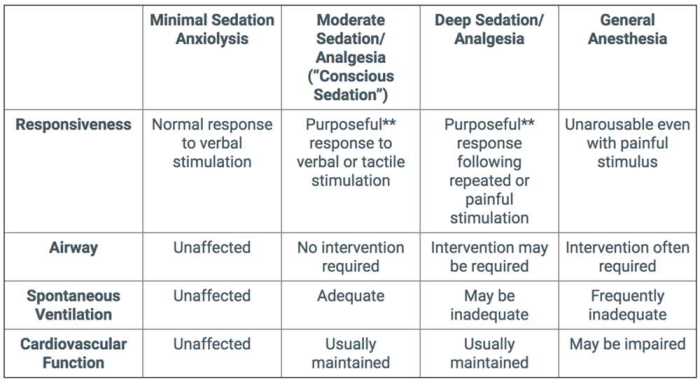Welcome to our comprehensive guide on moderate sedation test questions and answers. This guide is designed to provide you with a thorough understanding of moderate sedation, including its types, indications, contraindications, monitoring, medications, techniques, and emergency management.
As you delve into this guide, you will gain valuable knowledge and insights into the safe and effective administration of moderate sedation. Whether you are a healthcare professional seeking to expand your knowledge or a patient seeking information about moderate sedation, this guide has something to offer you.
Moderate Sedation: Moderate Sedation Test Questions And Answers

Moderate sedation is a state of depressed consciousness that allows patients to tolerate uncomfortable or painful procedures while maintaining spontaneous ventilation and reflexes.
Types of Moderate Sedation, Moderate sedation test questions and answers
There are two main types of moderate sedation:
- Conscious sedation:Patients are awake and responsive to verbal stimuli.
- Deep sedation:Patients are less responsive to verbal stimuli and may require tactile stimulation to arouse.
Conscious sedation is generally preferred when patients need to maintain some level of consciousness, such as during dental procedures. Deep sedation is used for more painful or invasive procedures, such as endoscopy.
Indications for Moderate Sedation
Moderate sedation is indicated for a variety of procedures, including:
- Painful procedures, such as biopsies and wound care
- Anxiety management during procedures, such as MRI scans and dental appointments
- Sedation for diagnostic or therapeutic procedures, such as endoscopy and colonoscopy
The decision to use moderate sedation should be made on a case-by-case basis, taking into account the patient’s medical history, the procedure to be performed, and the patient’s preferences.
Contraindications to Moderate Sedation
Moderate sedation is contraindicated in patients with:
- Severe respiratory depression
- Unstable cardiovascular status
- Obstructive sleep apnea
- Recent drug or alcohol use
The risks and benefits of moderate sedation should be carefully weighed in patients with these contraindications.
Quick FAQs
What are the different types of moderate sedation?
Moderate sedation can be classified into two main types: conscious sedation and deep sedation.
What are the advantages and disadvantages of conscious sedation?
Conscious sedation allows patients to maintain consciousness and respond to verbal commands. It is less invasive than deep sedation and has a shorter recovery time. However, it may not be suitable for patients who are anxious or uncooperative.
What are the advantages and disadvantages of deep sedation?
Deep sedation induces a state of unconsciousness, allowing patients to tolerate more invasive procedures. It has a longer recovery time than conscious sedation and requires closer monitoring.
What are the indications for moderate sedation?
Moderate sedation is indicated for a variety of procedures, including painful procedures, diagnostic tests, and dental work.
What are the contraindications to moderate sedation?
Moderate sedation is contraindicated in patients with severe respiratory depression, unstable cardiovascular status, or a known allergy to the sedative medications.

